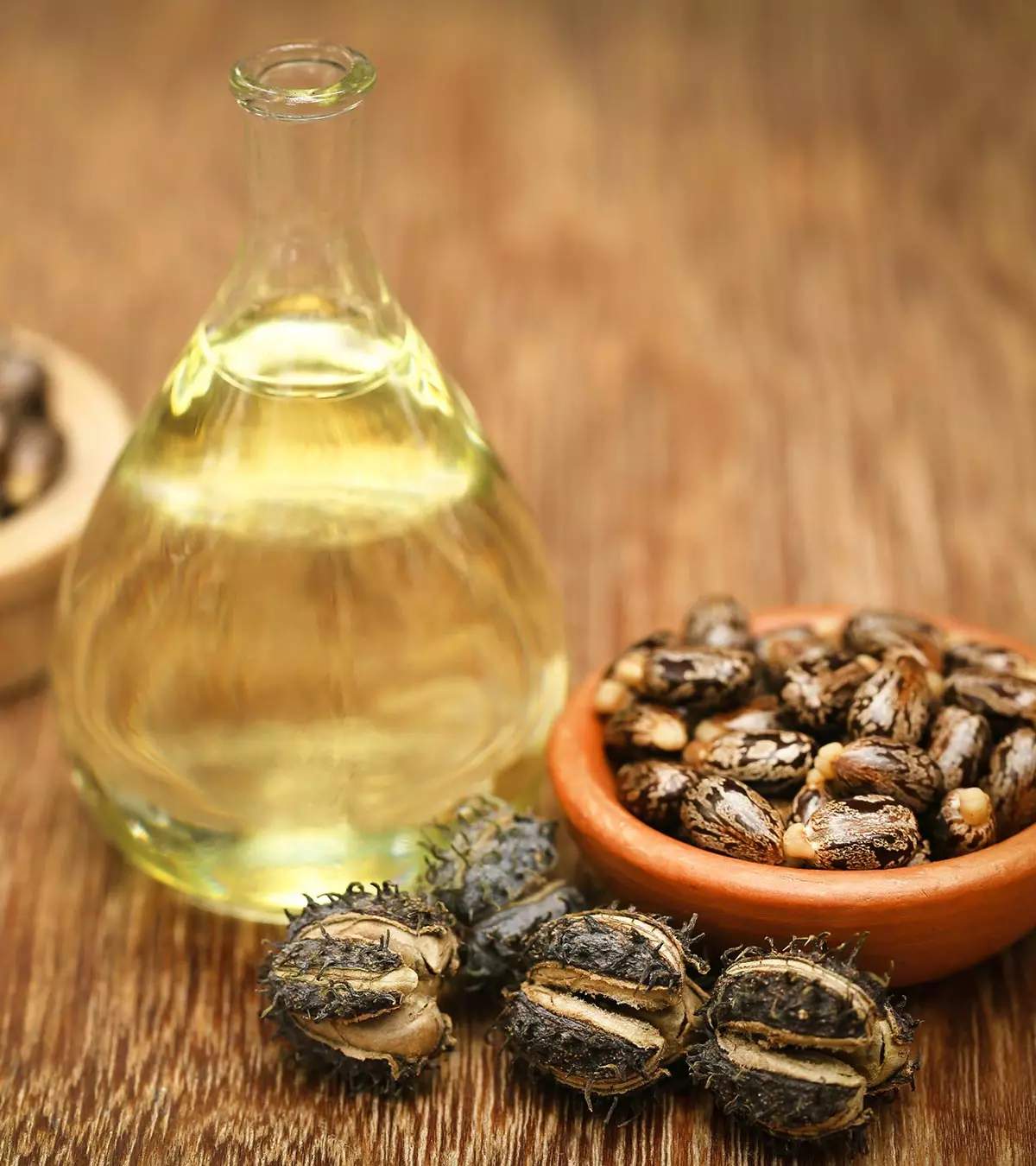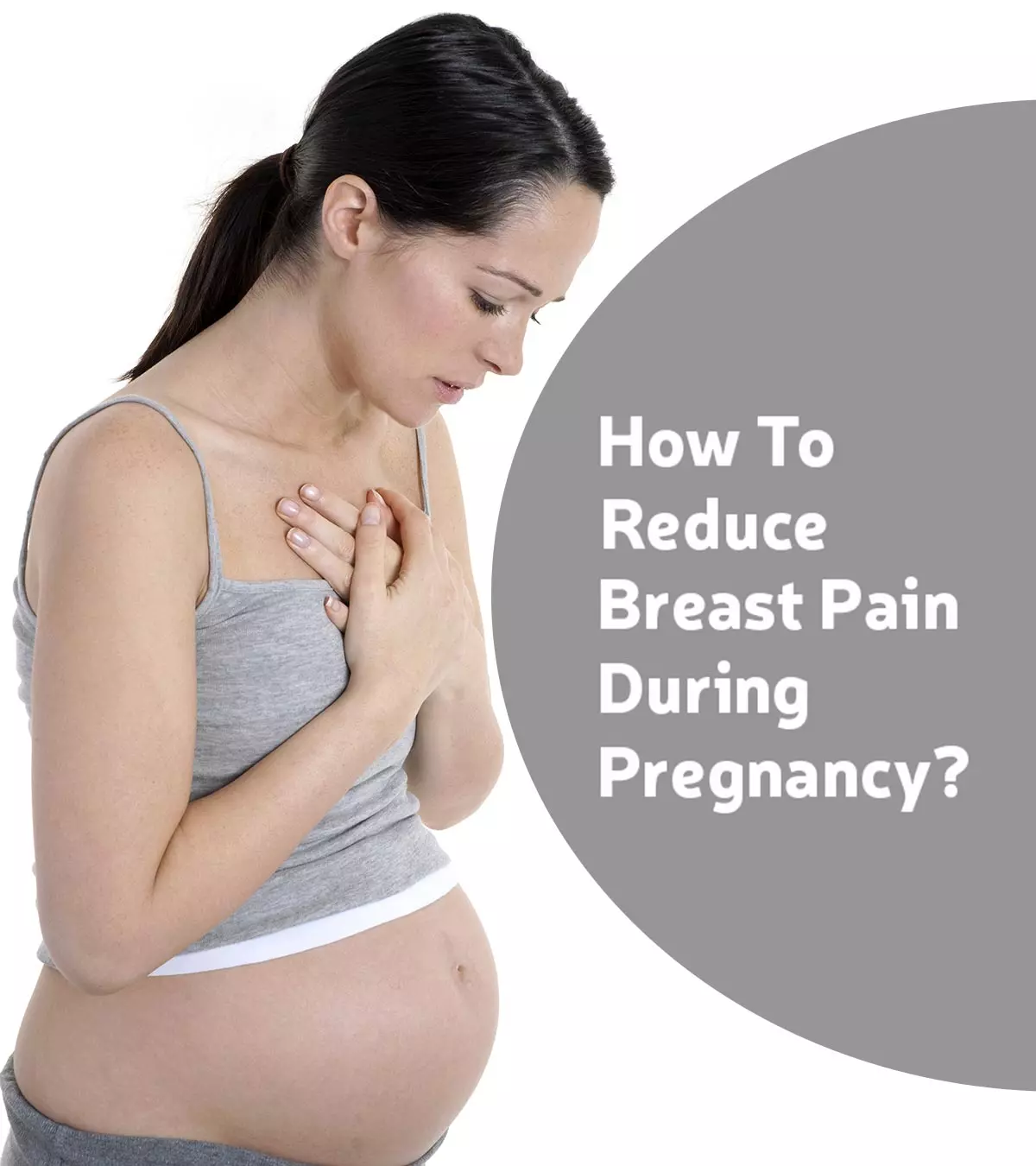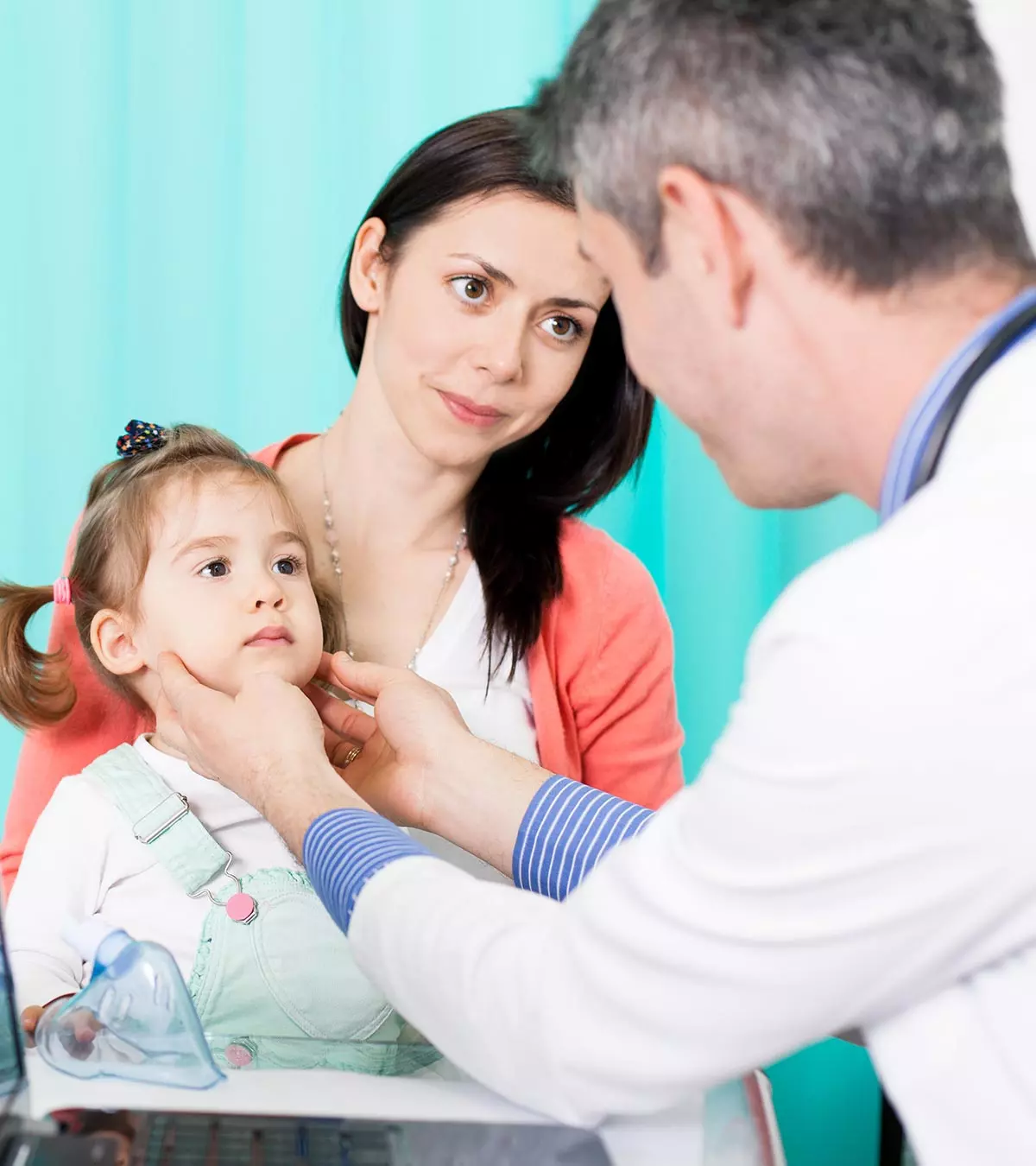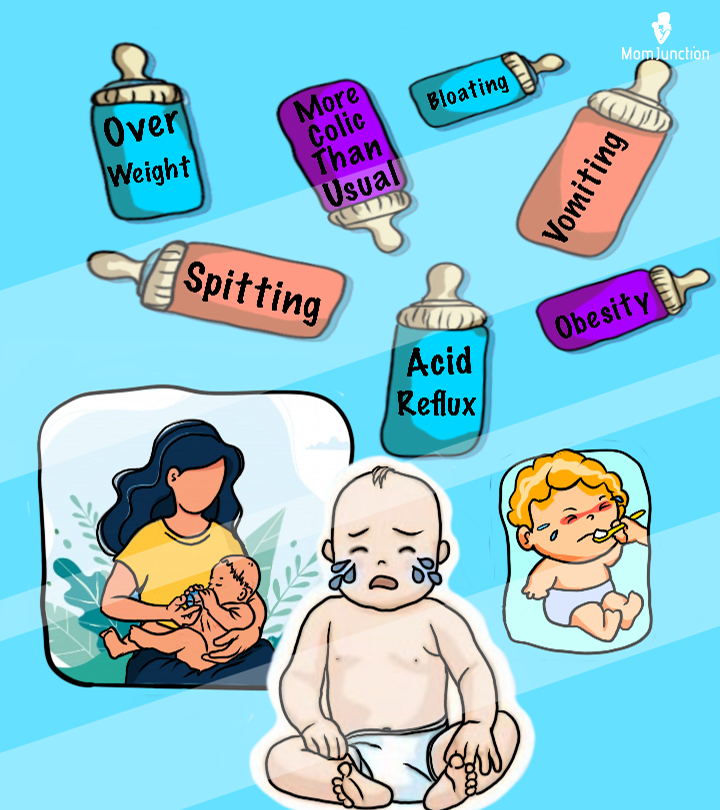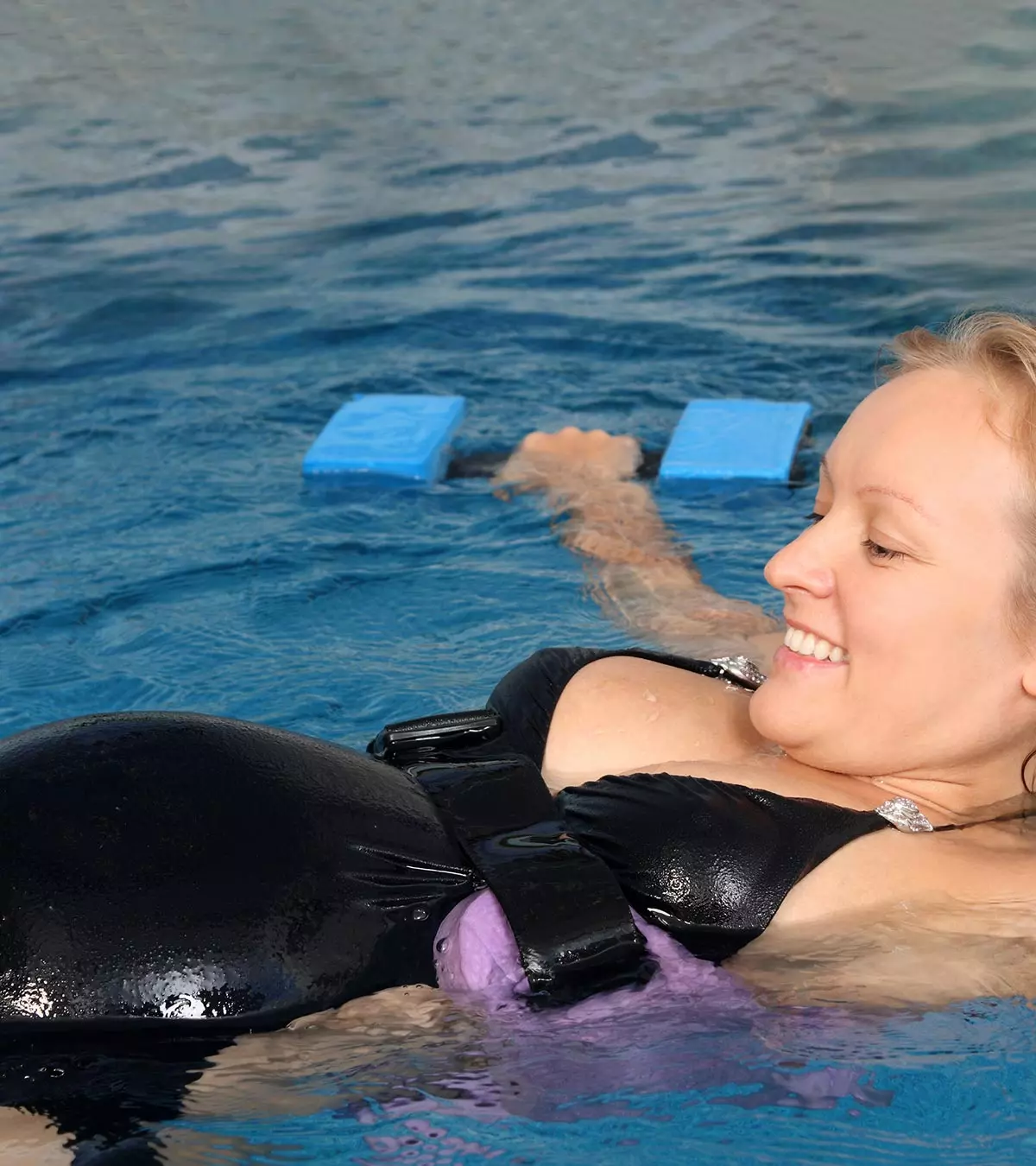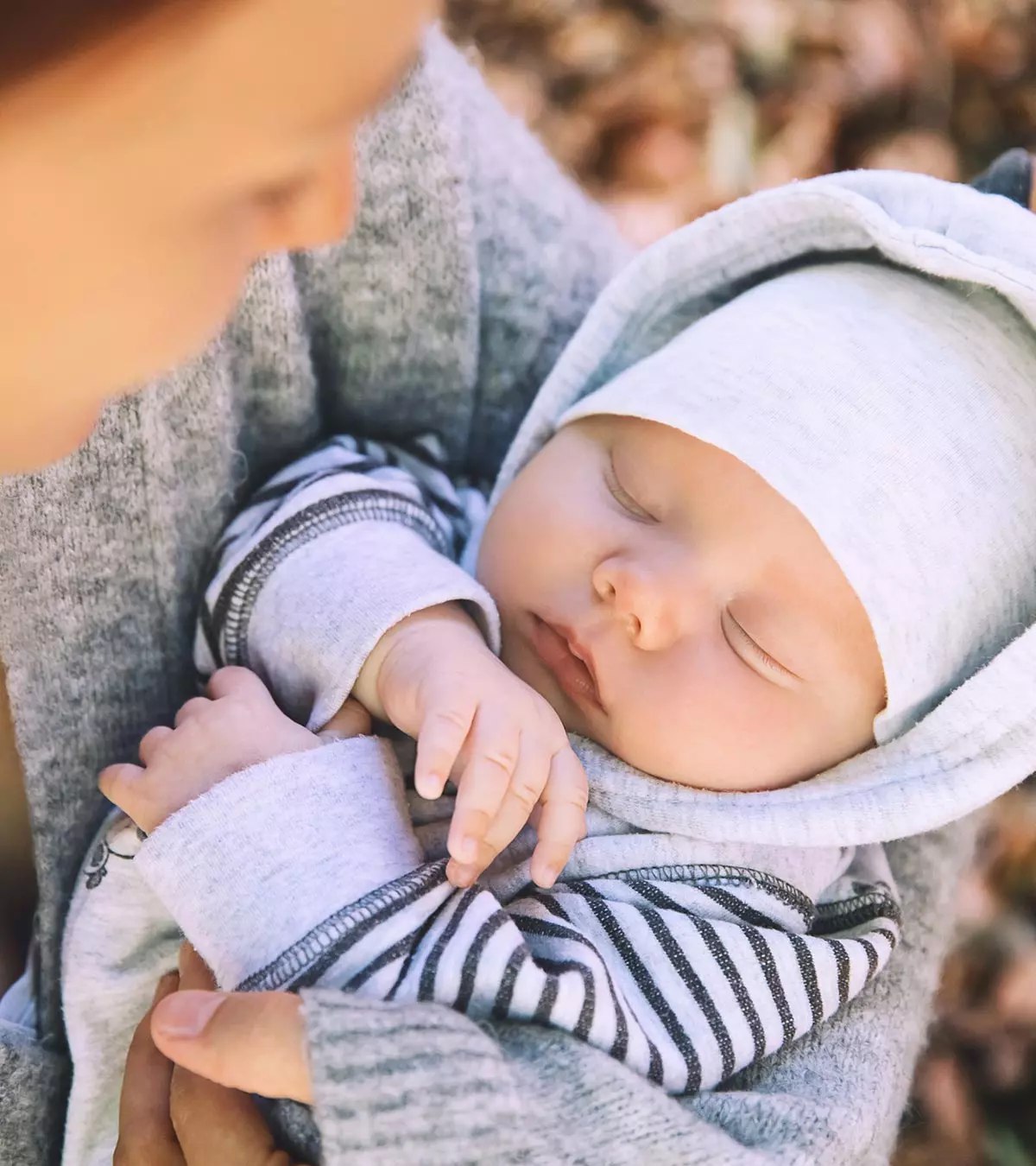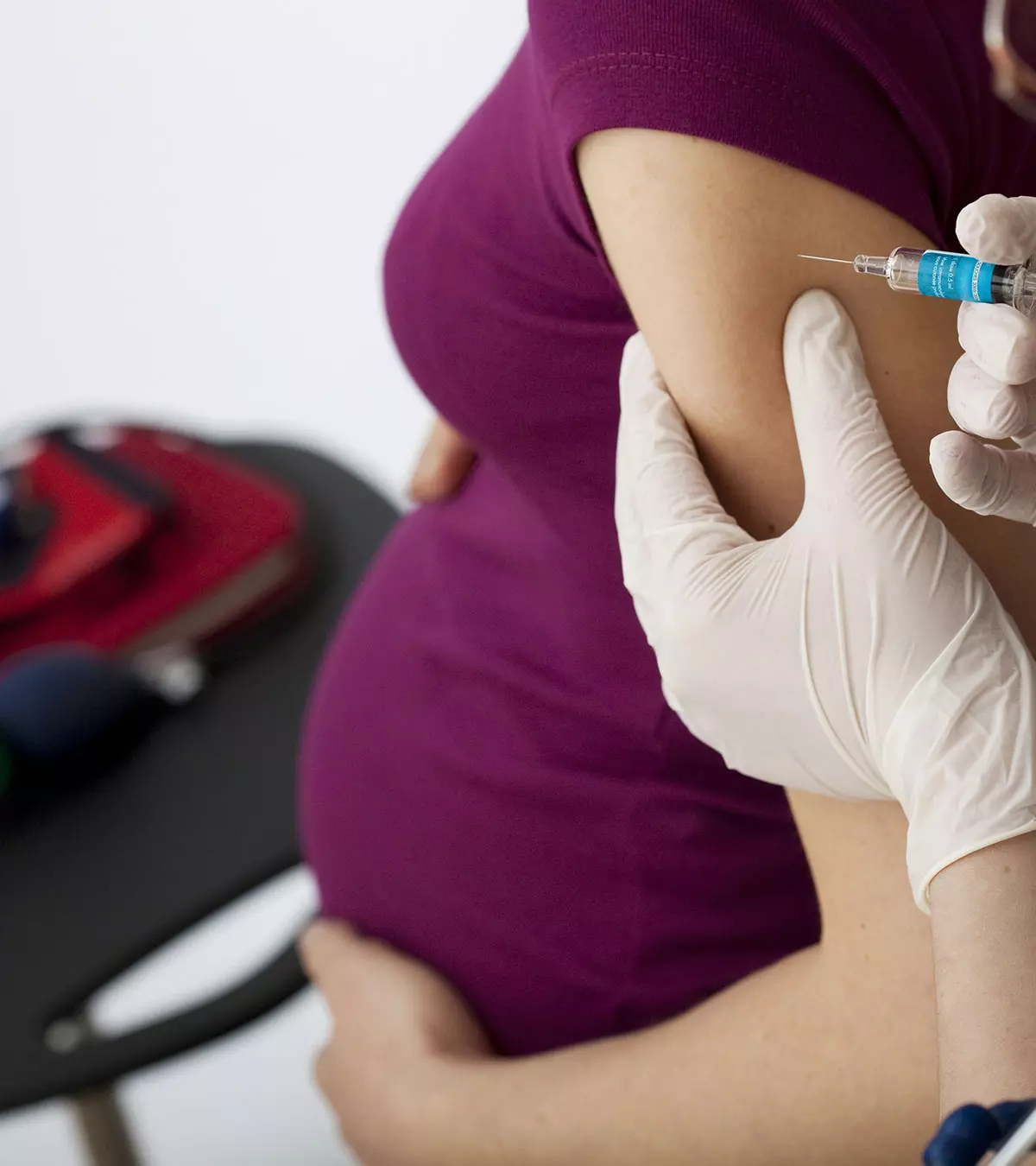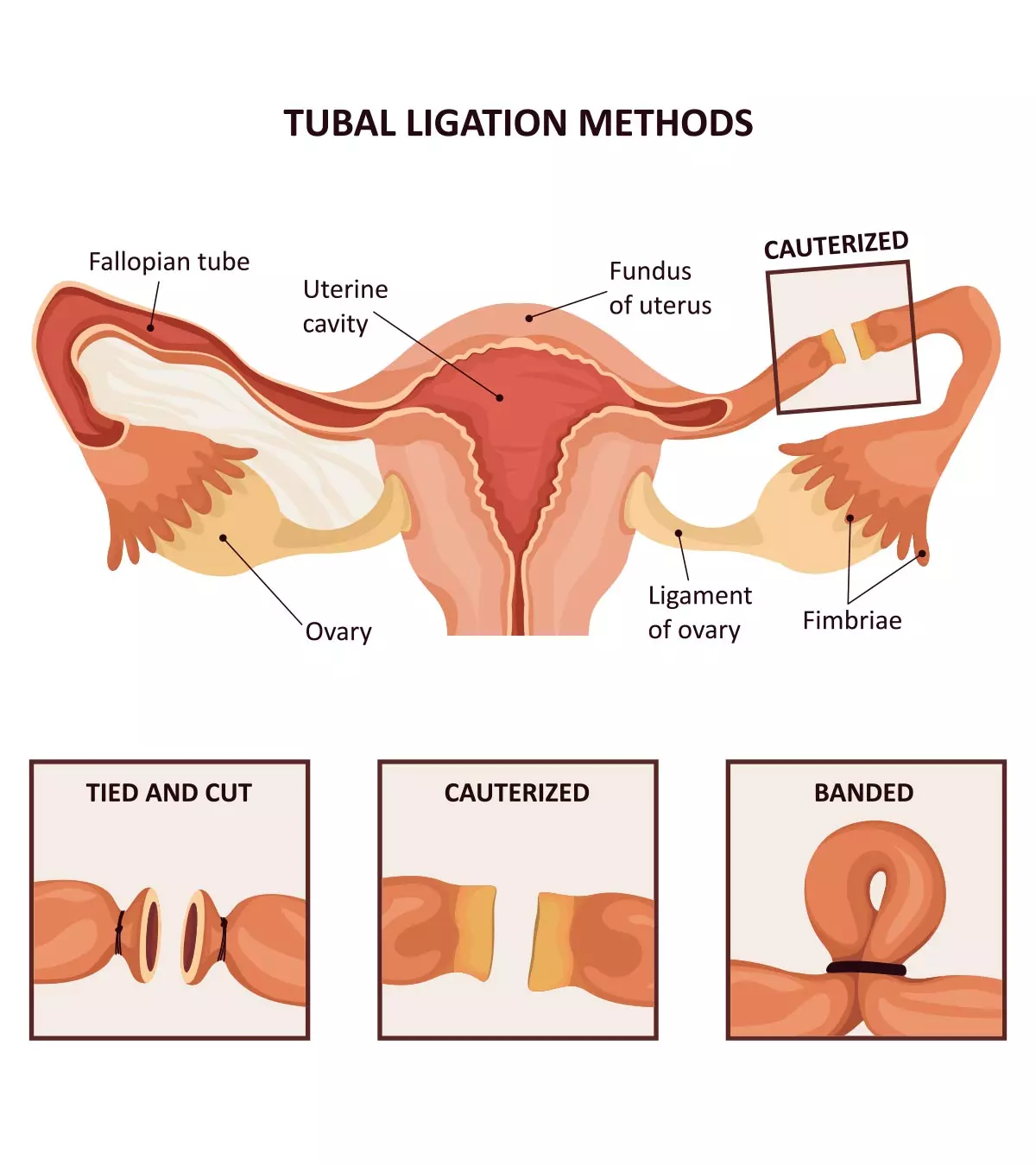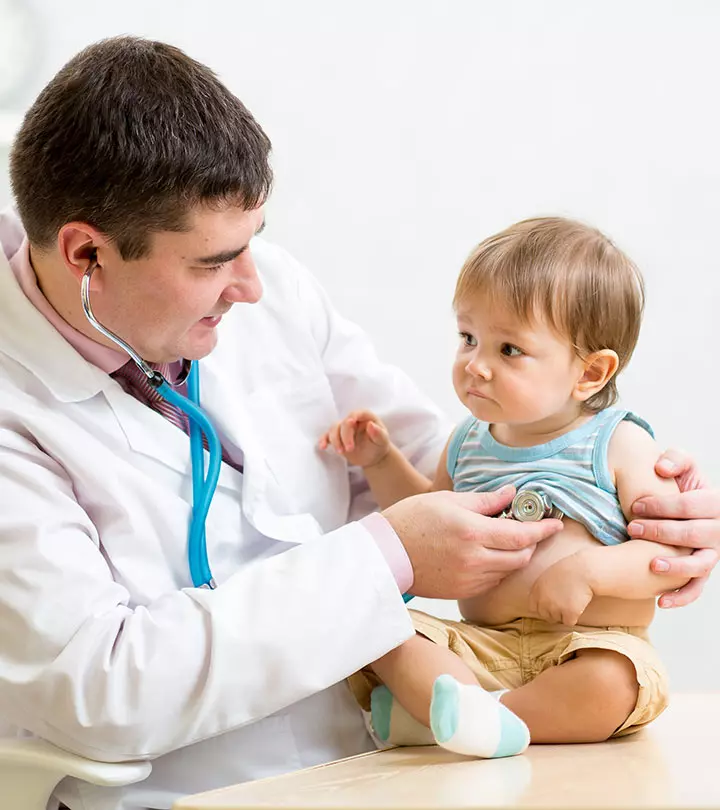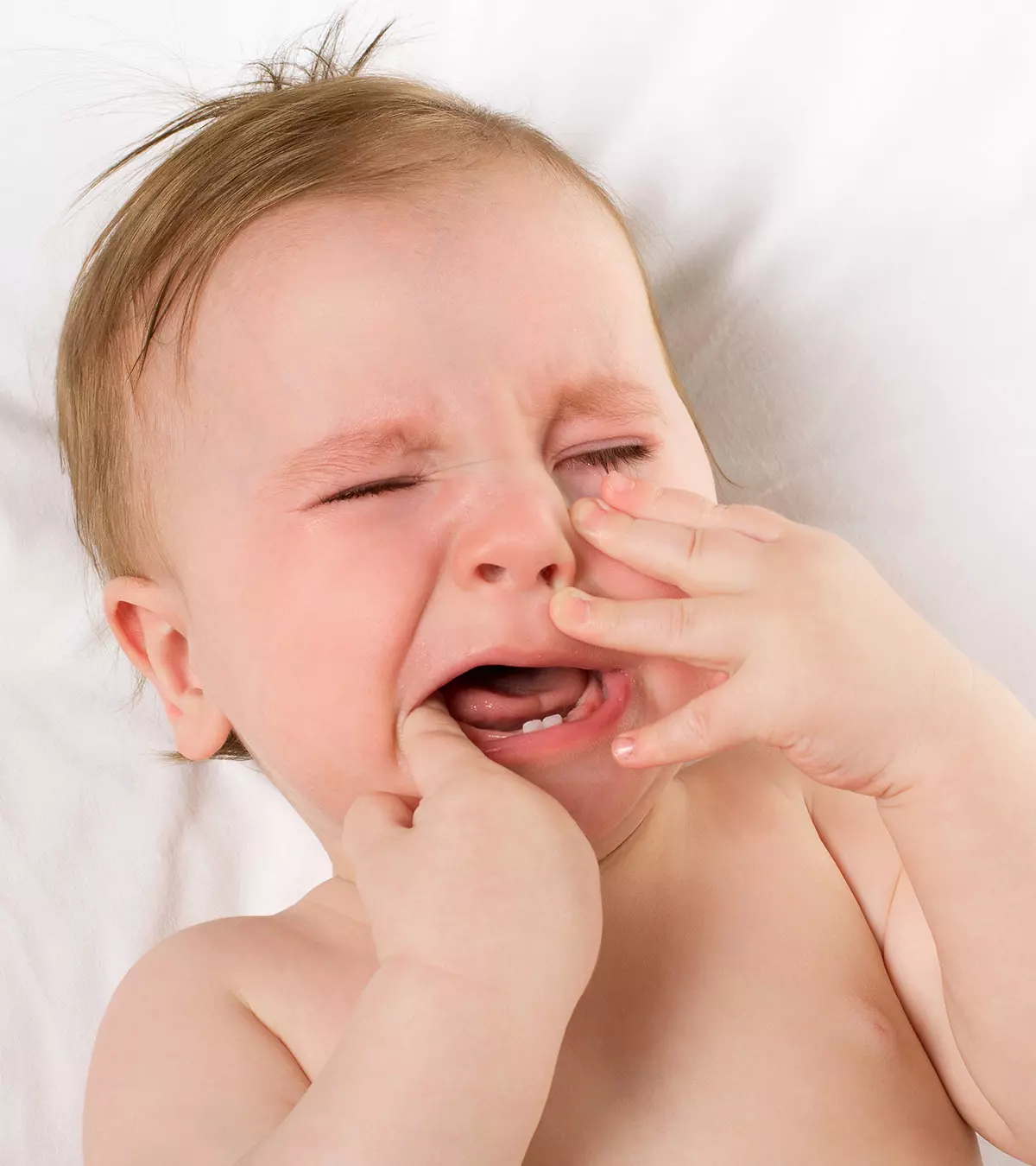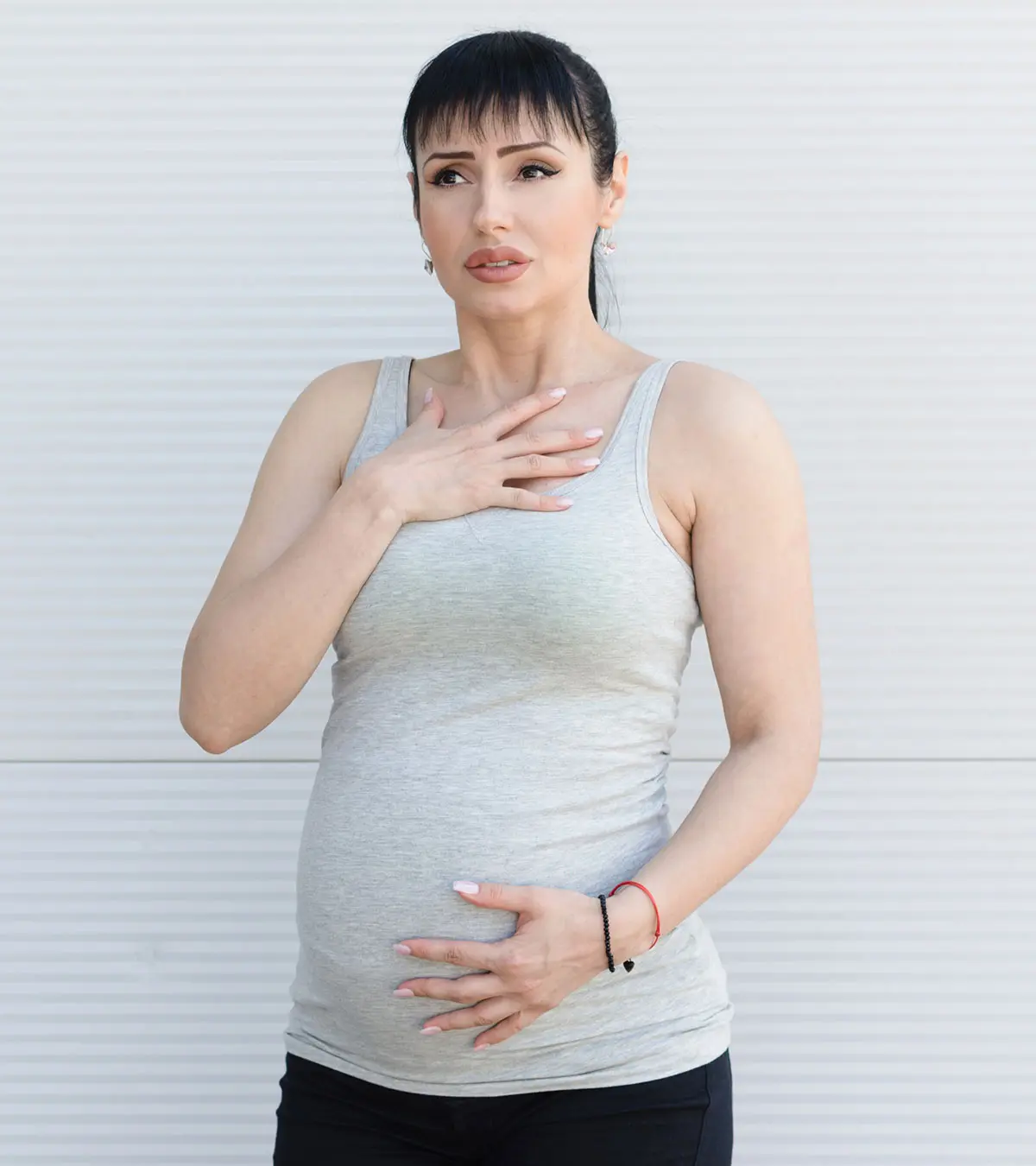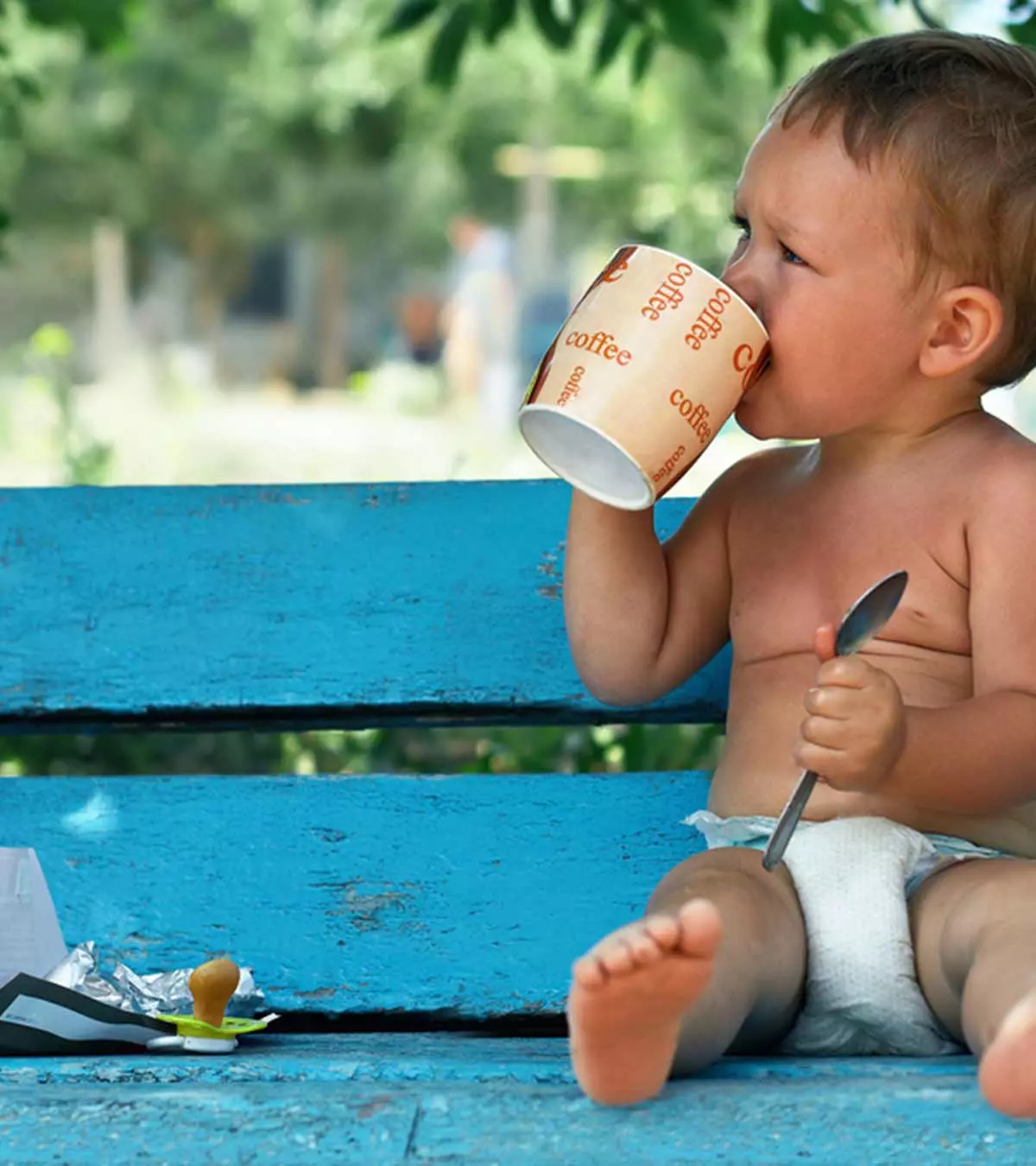
image: Shutterstock
Coffee is a popular beverage across the world. While some older teens may consume it occasionally, can you consider coffee for babies? The principal substance of coffee is caffeine, which is known to be a stimulantiA class of medications that expedite the transmission of information between the brain and the body. , improving mental alertness. Although uncommon, some parents may consider the beverage for babies, while some may wonder what happens if the baby sips it accidentally.
It’s important for parents to be aware of the effects these drinks can have on young children. Read this post to know if coffee is suitable for infants and the potential effects of it in case a baby drinks it.
Key Pointers
- Coffee is not suitable for the consumption of babies and toddlers as it contains caffeine.
- Caffeine could cause irritability, poor bone health, or acid reflux.
- Coffee should be avoided till your child is 12 years of age.
Can Babies And Toddlers Have Coffee?
No, infants and toddlers must not consume coffee due to its caffeine content. The American Academy of Pediatrics states that children must not have caffeinated beverages up to five years of age (1). It is usually suggested not to offer coffee at least until the child is in their teens. Coffee may also not provide any nutrition to babies and toddlers. Besides, the effects of caffeine could be compounded in children more than in adults. While some parents may consider tea for toddlers as a substitute for coffee, it’s important to note that tea also contains caffeine.
According to Lisa Richards, nutritionist and the founder of Candida Diet, “Coffee is not recommended for babies. Even small amounts of caffeine can significantly impact their tiny bodies. Additionally, introducing coffee to infants could potentially lead to a dependence on caffeine later in life. It’s crucial for babies to receive proper nutrition from breast milk or formula, rather than introducing stimulants like coffee.”
 Research finds
Research findsEffects Of Coffee On Babies And Toddlers
Most adults consume coffee to experience the stimulating effects of caffeine, a bitter compound naturally found in coffee beans (2). The liver metabolizes caffeine, controlling any adverse reactions (3). However, it may not be the case with infants and toddlers.
Babies have low body mass, and their organ systems are still developing. Thus, a small amount of caffeine may be sufficient to trigger the magnified effects of the compound. The effects on a baby’s organs are not extensively studied. However, experts believe that caffeine may negatively impact various developing organ systems of the baby’s body (4). The nervous and circulatory systems could be the most affected by caffeine.
The consumption of coffee by babies and toddlers may lead to the following effects due to caffeine (5) (6).
- The baby may display irritability due to the effects on the nervous system. Caffeine may cause dizziness and headache, which may make the baby fussy.

Image: Shutterstock
- Caffeine is known to increase heart rate and blood pressure. These may remain elevated for a long time if the baby consumes too much coffee at a time or is served coffee frequently.
- The baby may display increased alertness and poor sleep.
- Caffeine is a diureticiA medication that stimulates the kidneys to produce more urine. since it increases urine output. You may notice frequently soiled diapers if your baby consumes too much coffee. This may increase the risk of dehydration in young babies.
- Frequent ingestion of caffeine may affect calcium metabolism and absorption in the body. It may increase the risk of poor bone health and bone loss.
- Caffeine and other substances in coffee could stimulate stomach acid production, increasing the risk of acid reflux in babies. Babies with existing gastroesophageal reflux disease could experience an exacerbationiAn increase in the severity of a disease or its symptoms and signs. of symptoms after coffee consumption. Additionally, adding creamer, sugar, or syrup to coffee can increase the sugar intake of young children, which may contribute to obesity and other health issues.
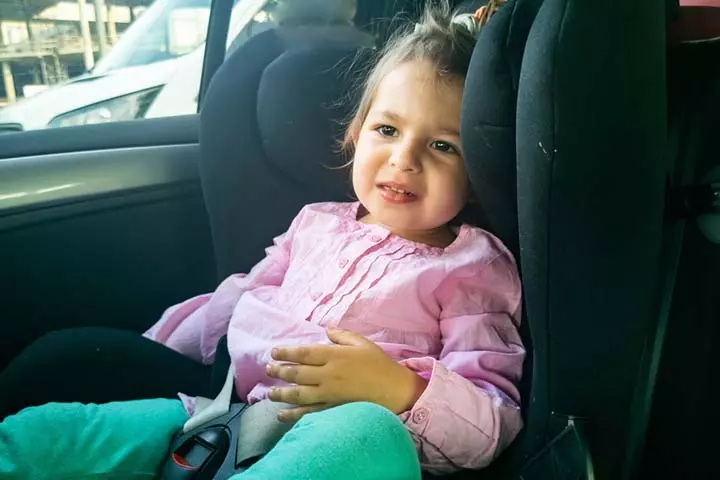
Image: Shutterstock
 Point to consider
Point to considerCaffeine is also considered to be a potentially addictive psychoactiveiA drug or other substance that alters the way the brain functions, leading to changes in mood, feelings, thoughts, or behavior. substance (7). A baby who is served coffee periodically may demand it frequently, increasing the risk of the aforementioned effects. There isn’t any research yet on whether drinking coffee in childhood affects adulthood positively or negatively.
What If Your Baby Accidentally Consumes Coffee?

Image: Shutterstock
A sip or two of coffee may not usually cause any adverse effects. You may immediately offer the baby breast milk or formula to dilute the consumed coffee. If your baby is on solids, you may offer a food item to prevent any potential gastrointestinal discomfort.
Ensure that you keep coffee and other caffeinated beverages away from the baby or toddler’s reach. Do not serve coffee regularly, even if the accidental consumption did not elicit any reaction.
At What Age Can A Baby Drink Coffee?
There is no universally approved age for when babies can consume coffee (8). Generally, the consumption of coffee for kids below the age of five years is discouraged. It should be avoided at least until the age of 12 years, and parents should avoid serving coffee until the child is 18 years old. The U.S. Food and Drug Administration suggests that parents consult a healthcare provider before introducing coffee or other caffeinated beverages to children (9).
Frequently Asked Questions
1. How do I know my breastfed baby is sensitive to caffeine?
Caffeine usually passes into breast milk in small quantities. Significant quantities of caffeine may be found if you consume several cups of coffee and other caffeinated beverages a day. Some babies could be sensitive to small amounts of the compound. If your baby appears fussy, has trouble sleeping, and seems overactive after a breastfeeding session, it may indicate sensitivity to caffeine in breast milk (10). In such cases, avoid drinking coffee before the breastfeeding session or opt for decaf coffee while breastfeeding.
2. Why do they give caffeine to babies in the NICU?
Caffeine is usually administered to preterm babies in the neonatal intensive care unit (NICU). The respiratory system of preterms is not well-developed, increasing the risk of apnea of prematurityiAn abrupt pause in breathing lasting at least 20 seconds. where the baby has prolonged pauses in breathing. The doctor may administer caffeine since it is one of the methylxanthines, a type of stimulant compound. Caffeine stimulates the central nervous system and improves respiratory function, making it easier for the baby to breathe (11). It is given orally or intravenously in the form of caffeine citrate (12).
3. Can babies drink decaf coffee?
Decaffeination removes about 97% of caffeine. Yet, decaf coffee contains some caffeine (13). Hence, babies and toddlers should not drink decaf coffee. Furthermore, the roast and ground type are irrelevant for babies and toddlers’ safety, as it is not recommended for them to consume it at all.
4. Can coffee cause eczemaiA set of conditions that cause the skin to become inflamed and blistered. in breastfed babies?
Research suggests that mothers’ moderate chocolate and coffee consumption could lead to moderate to severe aggravation of eczema (atopic dermatitis) in infants already with the condition (14). However, more research is needed to establish a definitive correlation between maternal coffee consumption and the development or exacerbation of eczema in breastfeeding babies.
Coffee for babies or toddlers is not advisable since its caffeine content may impact their sleeping schedules. The effects of coffee may amplify in toddlers due to their body mass. Therefore, even smaller amounts may have higher unfavorable impacts on them. An accidental sip of coffee once in a while is nothing to worry about. But ensure that your child doesn’t drink it frequently. If they are hesitant to give caffeinated beverages a try, encourage them to consume healthy alternatives like fresh fruit juices or homemade milkshakes. Avoid introducing coffee to children until they reach their teens. Young children need proper nutrition without stimulants to support their healthy growth and development.
Infographic: Popular Children’s Food Items You Perhaps Didn’t Know Contain Caffeine
Although it is not advised to give coffee or caffeine-containing food items to children younger than 12 months, some food products consumed by children may also contain small amounts of caffeine. Here is an infographic with a list of food items that perhaps you didn’t know contained caffeine. Illustration: Momjunction Design Team
Illustration: Coffee For Babies And Toddlers: Is It Safe And Its Effects

Image: Stable Diffusion/MomJunction Design Team
Delve into this thought provoking video that answers your concerns about giving coffee to your little one, from the point of view of a medical expert.
References
1. Natalie D. Muth,American Academy of Pediatrics
2. Caffeine;U.S. National Library of Medicine
3. Pharmacology of Caffeine;U.S. National Library of Medicine
4. Ellen McVay,Is Coffee Bad for Kids?;John Hopkins Medicine
5. Caffeine;Harvard T.H. Chan School of Public Health
6. Coffee, Tea and Bone Health;American Bone Health
7. Jennifer L. Temple,Caffeine Use in Children;U.S. National Library of Medicine
8. Kevin Joy,Parents, Perk Up to the Dangers of Caffeine for Teens;University of Michigan
9. Spilling the Beans: How Much Caffeine is Too Much?;USFDA
10. Sheilah Hebert,Breastfeeding and caffeine intake;Michigan State University
11. Rafael Franco, Ainhoa Onatibia-Astibia, and Eva Martinez-Pinilla,Health Benefits of Methylxanthines in Cacao and Chocolate;U.S. National Library of Medicine
12. Eunice Mueni, Newton Opiyo, and Mike English,Caffeine for the management of apnea in preterm infants; U.S. National Library of Medicine
13. All About Decaffeinated Coffee; National Coffee Association of U.S.A
14. Aimee McCreedy et al.; Effects of maternal caffeine consumption on the breastfed child: a systematic review; NCBI
15. Laura Burnham et al.; Breastfeeding and Coffee Consumption in Children Younger than 2 Years in Boston, Massachusetts, USA; Journal of Human Lactation
Community Experiences
Join the conversation and become a part of our nurturing community! Share your stories, experiences, and insights to connect with fellow parents.
Read full bio of Maria Carmela Villania-Mamauag
- Lisa Richards is a certified nutritionist coach from the Institute for Integrative Nutrition. She is an author at the Candida Diet (thecandidadiet.com), with 17 years of experience.
 Lisa Richards is a certified nutritionist coach from the Institute for Integrative Nutrition. She is an author at the Candida Diet (thecandidadiet.com), with 17 years of experience.
Lisa Richards is a certified nutritionist coach from the Institute for Integrative Nutrition. She is an author at the Candida Diet (thecandidadiet.com), with 17 years of experience.
Read full bio of Sindusha MS
Read full bio of Swati Patwal
Read full bio of Ghazia Shah







